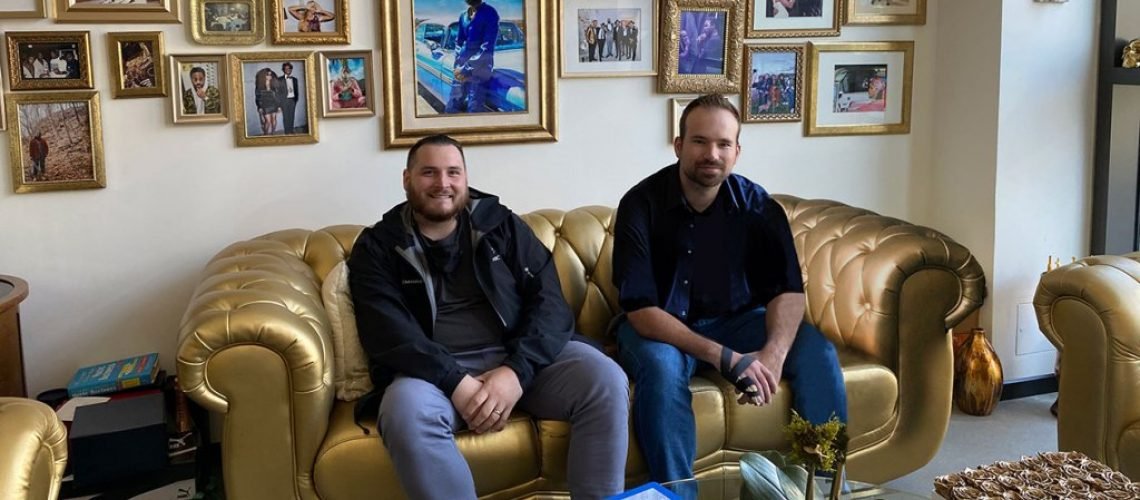Andrew Batey, who makes music under the name Urban Outlaws, recently released a happy-go-boozy country song titled “Drinkin’ Drinks.” This enthusiastic celebration of all things alcoholic resonated with some listeners — but the song’s streaming activity looked irregular, so platforms worried that Batey was manipulating his numbers. “I got flagged for fraud,” he told a crowd during a panel at A2IM Indie Week in New York City last month. “They actually froze 200,000 streams and stopped counting [plays] and pulled me off some playlists.”
Batey was eventually able to prove that those plays were legitimate. The irony is that he is the founder and co-CEO of Beatdapp, a company that aims to help streaming services, labels, and distributors detect streaming fraud to minimize its impact on the music ecosystem. The industry has become more concerned about this issue in recent years, because bad actors can potentially divert income from deserving artists and labels and also create false signals of popularity. Streaming fraud is now a regular panel topic — that was Batey’s reason for attending Indie Week, which hosted a discussion of fraud in 2019 as well. That same year, much of the music industry signed a well-intentioned, if not particularly meaty, “Code of Best Practice” to signal its opposition to any streaming chicanery.
But Batey and his business partner, Morgan Hayduk, believe that fighting fraud effectively requires a third-party company like theirs, which can gather and analyze anonymized data from competitors to paint the most accurate picture of how people are gaming the streaming system for personal gain — and then make sure that fake streams are not counted in charts or calculations related to payouts. Streaming fraud “will influence market share and the distribution of royalties across the entire ecosystem,” Hayduk explains. “Even if just 2% of fraud is slipping through, that’s a material number And I think it’s more than that.” U.S. streaming revenue exceeded $12.4 billion in 2021; if 2% of that was allocated to the wrong parties due to undetected fraud, that would be close to $250 million.
Beatdapp aspires to be the music industry equivalent of Verafin, a Canadian company that battles financial crime. “J.P. Morgan, Citibank, and Scotiabank aren’t gonna share transactional data with one another [because they’re rivals], but they could share it with Verafin,” Hayduk says. “Then Verafin trains models with that data and can spit out answers saying, ‘Here are examples of suspicious transactions that you should be flagging.’”
Streaming fraud is a broad term encompassing a variety of activities — one of the most concise definitions of the practice, offered up at that 2019 Indie Week panel, was “anything which isn’t fans listening to music they love.” There are typically two justifications for trying to boost play counts through artificial means.
The first relates to perception. Artists’ play counts impact their public image, so juicing those numbers can create an illusion of popularity that may turn into the real thing. There is also a potential economic motivation for trying to manipulate play-counts: If someone can cheaply drive a large number of plays to content they own and escape detection, it’s possible to generate profits.
Beatdapp’s founders were not initially focused on detecting this activity and minimizing its impacts. Batey spent years working in digital marketing — “back in the day I used to hack a lot of the platforms for artists,” he explained at Indie Week, “… which I think uniquely puts me in the position to help fight that same problem today.” Hayduk got his start as a lobbyist working with the Canadian music industry on copyright protection. (“Lobbyist is a far less dirty word in Canada because we have no money in our politics,” he notes.)
When the two men joined forces, their original intent was to build an auditing tool to sell to labels — a way for music companies to evaluate inconsistencies between their own data and the data coming from streaming services that determined payouts. As he and Batey tried to make sense of those discrepancies, they started to hear a theory about their root cause. “Streaming fraud came up over and over again,” Hayduk recalls.
This caused Batey and Hayduk to shift focus. They figured that if they were able to develop a tool to detect fraudulent streams and prevent them from impacting payouts, that would go a long way towards helping solve their original problem. This also meant focusing on attracting streaming services as clients, rather than labels.
One of the challenges in battling streaming fraud is the cost, according to Eric Drott, a professor at UT Austin who has written about the issue. “As profit-seeking enterprises striving to keep labor costs as low as possible, streaming services rely heavily on algorithmic processes for identifying artificially inflated play and follower counts,” Drott argued in a 2020 article. “Where cheap technologies of fraud detection prove most effective is in combating equally cheap methods of generating fake streams, which is to say, those that likewise rely on automation.”
But Drott also noted that fraud techniques can be “more sophisticated” — “bots and automated scripts able to play back individual tracks, albums, and/or playlists on loops of variable duration across a range of (simulated) locations using a series of (fake) user accounts.” As Hayduk puts it, many would-be fraudsters “have no interest in art at all — or they have interest in the art of fraud, but not in the art of music.”
Beatdapp’s founders are quick to heap praise on their data science team, because ferreting out fraud in this environment requires the thoroughly unsexy work of sifting through a wild amount of data, looking for listening patterns that don’t make sense. If someone streams 12,000 songs in a week in one account, for example, Hayduk notes, “you don’t need machine learning to figure out that’s suspicious. That’s impossible for one human to consume that much music over the course of a week.”
There are other similar scenarios that quickly trigger red flags, according to the Beatdapp founders: It’s unlikely that an account would stream music 24 hours a day, or that a user’s phone battery would never dip below 100% or move locations while that person streams, or that a single account would be linked to 30 different devices.
Some fraudulent efforts are more sophisticated and cunningly camouflaged, however, which is where all the fancy models come in. One of Beatdapp’s favorite examples to highlight involves an account that plays a modest 63 songs a week. “You probably wouldn’t bother investigating this account,” Hayduk says, since nothing seems suspicious at first glance.
But Beatdapp’s models are able to show the similarities between different users’ listening patterns, and in this case, it turned out there were numerous accounts all streaming the exact same 63 songs. “If I’m trying to push numbers up, I’m going to do it across streaming services in a subtle fashion this way,” Batey says. “There are streaming services that don’t require email verification to sign up, so it’s easy to create accounts and just play 63 songs and no one notices. Spread that across a lot of accounts and multiple platforms, and you can drive a significant number of plays with no one looking.”
While the popular conversation tends to focus on just a handful of streaming platforms, there are many that can be used to drive fraudulent activity. A central part of Beatdapp’s pitch is that they want to collect data from as many of these as possible. A listening pattern that might look harmless on one platform could turn out to be a smartly designed manipulation effort if it repeats across several. Hayduk is adamant that “cross-institutional analysis is the thing that’s going to yield the most accurate results about suspicious transactions.”
In recent months, Beatdapp’s founders say their “help us help you” pitch has gotten slightly easier, a shift they find heartening. After all, the music business is made up of competing companies, with little history of collective action or self-oversight.
But streaming fraud appears to be worrying some of the key players in the industry. “Streaming services recognize this issue is happening, they’ve taken steps to try to mitigate it, but those steps still don’t give them the complete picture of what’s going on,” Hayduk says. “They start to look externally for ways to augment what they already have under way. And that’s a good spot for us to be in.”




